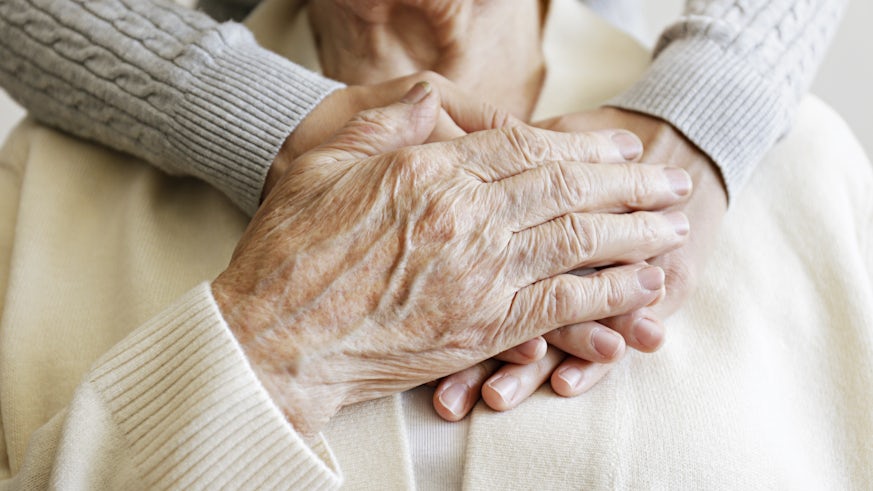New research reveals attitudes to death and dying in UK
2 November 2021

Most people believe it is important to plan care preferences in advance of dying but very few have taken any action, according to new research led by Cardiff University’s Marie Curie Palliative Care Research Centre.
Researchers analysed survey data from 8,077 adults across the UK to understand attitudes to death and dying, including what people understand of palliative and end of life care and willingness to discuss plans.
Nearly 90% of respondents agreed that planning for end of life was essential, but just 14% of people had formally done so. The study findings are published in a report released today.
Chief investigator Professor Annmarie Nelson, Scientific Director at the Marie Curie Palliative Care Research Centre based at Cardiff University’s School of Medicine, said: “The responses suggest that as a society we have a long way to go to enable effective discussions and end of life planning, and although we are willing to have these conversations, we lack the language, and often don’t follow through on our intentions to plan.”
The study also found:
- Seven in 10 people believe their preferences around death and dying should take priority over the wishes of their next of kin or their doctor’s advice
- Only 20% of people have made financial arrangements for their funeral and only 40% have talked to someone about whether they want their body to be buried, cremated, or donated;
- Around 60% of people did not agree, or did not know, whether adequate services are available;
- The majority of people (77%) think end of life care should be given equal priority in the NHS as care for people in any other stage of life.
Professor Nelson said: “We asked people questions about what they understand about palliative and end of life care, their willingness to talk about their plans, their fears, and what matters in the last years and days of life. There is a huge gap between the proportion of people who say that they feel comfortable talking about death and dying, and the proportion who have actually done so.”
Marie Curie said the UK had reached a critical moment for improving palliative and end of life care and the charity is calling for major reform, including giving equal priority to end of life care.
Marie Curie Chief Executive Matthew Reed said: “How we treat people in the final phase of their life is a fundamental mark of a civilised society. Every day that passes without reform leaves people living, and dying, without the care and support they need, and without their voice being heard.”
Sarah Candlish, 47, experienced the death of her husband Simon and mother Ethel in the first wave of the pandemic. Her mother was admitted to hospital with COVID-19 and died alone whereas Simon, who had stage three bladder cancer, died at home with the support of Marie Curie nurses and Sarah at his side.

“Patient care means just that, a patient should be cared for equally no matter at what stage of life we are at and palliative services should be funded equally as any other service, to ensure we all have an equal right to high quality personalised care and support,” said Sarah.
Professor Nelson said further research was needed to better understand patient and family priorities to meet the reality of people’s needs.
“Palliative care as a medical specialty came to the fore in the pandemic, often leading the way in supporting patients, families – and inexperienced healthcare staff – during the COVID-19 crisis, at least in those sites that had access to the specialist teams. Specialist palliative care settings managed as best they could with restricted access to protective equipment,” she said.
“The evidence from this survey, which clearly points to the need to consider palliative and end of life care as a public health issue, and recent experience of its effectiveness as a specialty should highlight the need for further funding for services and research.”
The study protocol was reviewed by the School of Medicine’s ethics committee and research responses analysed by the Marie Curie Centre with further support from the PRIME (Primary Care and Emergency Care) Research Centre at Cardiff University. The Northern Ireland data were transferred to Queens University Belfast for analysis.